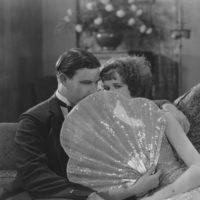Loving someone unconditionally is what most of us want to feel, what we hope to feel and what we do feel at times.
But most of us also have desires, feelings, wishes and dreams, and if our wishes are ignored, violated or dishonored, we will—knowingly or not—fall out of love with our intimate partners.
Thus, I am suggesting that unconditional love in an intimate romantic relationship is easy to feel for a short time, and very difficult—and perhaps impossible—to sustain over the long haul, even if we have an unusually nurturing, responsive and reciprocal relationship.
The following readers who wrote to this column illustrate the point:
- “I thought I’d experienced it with a woman I was with for just over a year, but it was not mutual, and I felt very betrayed. But the point is, when I believed in our relationship, my love for her was a close to unconditional as I’ve felt,” writes Alan S. from Denver.
- “Unconditional love lasted about a year and a half, until I became jealous or wanted more commitment than I got,” says Fred S. of London, Ontario. (In other words, until his conditions emerged.)
- “I think that my wife and I had it at first, but it could not survive me having an affair,” says Andrew B. from Christchurch, New Zealand. (In other words, until his wife’s conditions emerged.)
Who do we feel unconditional love for? In which relationship is it more likely to occur? The following readers tell of their experiences:
- “I first experienced unconditional love when I became a mother. One day I entered my child’s room and watched him as he slept. My heart was so open, the feeling so profound, there were no words to describe it. Ironically, it made me ever so aware of the absence of this quality in other relationships in my life,” says Geraldine from Ingersoll, Ontario.
- “Unconditional love? Maybe I experienced it in the early years of my marriage. I receive it from my children, mother and other close relatives. Also from my father before he died. It means love that is nonjudgmental, always loyal and trusting,” writes Nell M. from Wellington, New Zealand.
- “My parent’s love was unconditional. Unconditional love means never giving up on the other person,” suggests Agnes M. from Christchurch, New Zealand.
- “The only unconditional love I have ever seen was between people and animals. I have unconditional love for my cat, Sweetie. This does not exist between people,” says D.W. from Waukesha, Wisconsin.
- “I had unconditional love from my dog when I was growing up. People should be more like dogs. Less problems,” writes a woman from New Berlin, Wisconsin.
Many of us—knowingly or not—have conditions on our love. We need, want and expect other people to behave in sensitive, nurturing, responsive, loving and acceptable ways. If they don’t, our love changes.
Love is an emotion. Regardless of the vows, we can’t promise what emotions we are going to feel into the future. We might want to feel unconditional love, but in the end, most of us really do have conditions: if the person is unfaithful, does something that violates our values or sacred beliefs, acts aloof, distant and withdrawn for too long, or rejects us once to often, you may notice that your love lessens.
